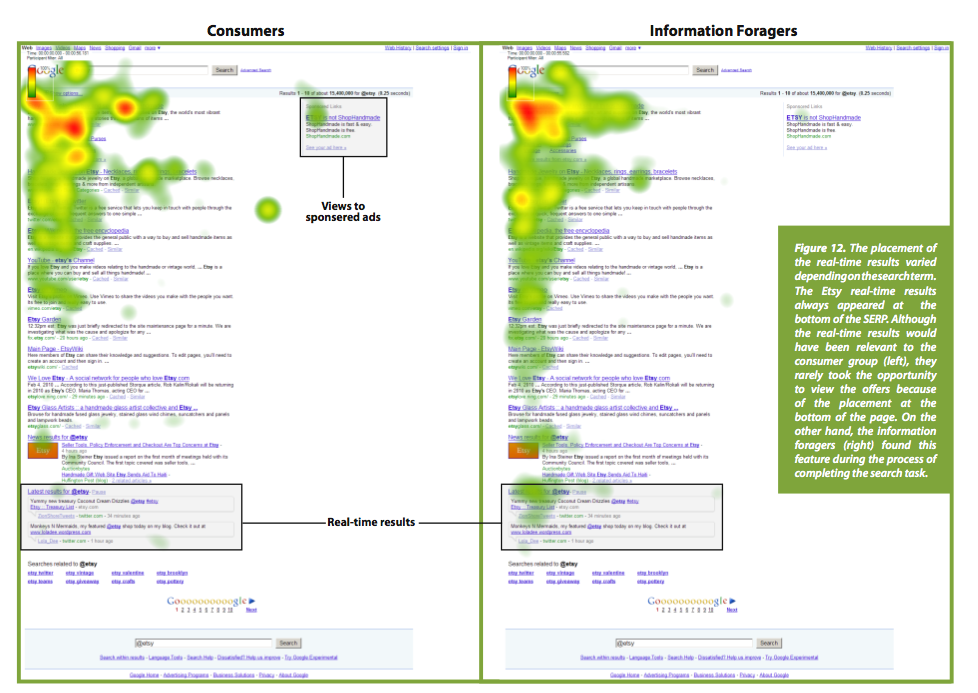Eye Tracking Study: Users Largely Blind To Real-Time Results In Search
Online marketing firm OneUpWeb recently conducted an eye-tracking study about the impact of integrating real-time data into search results. The study involved 44 people divided into two groups: “consumers” and “information foragers.” The difference between the groups involved the tasks they were given: The first group was told to search for a product they might […]
Online marketing firm OneUpWeb recently conducted an eye-tracking study about the impact of integrating real-time data into search results. The study involved 44 people divided into two groups: “consumers” and “information foragers.” The difference between the groups involved the tasks they were given:
The first group was told to search for a product they might buy, and were called the “consumer” group. The second group was told to simply look for information on a product, and were called the “forager” group.
The study, conducted last month, sought to answer the following questions:
- Does the average internet user recognize and understand real-time results?
- Are consumers finding and clicking on real-time results?
- And simply, the bird’s eye view: what are the consumers saying about real-time results?
At the highest level the results showed the following:
- 73% had never heard of real-time results before participating this study
- Only a quarter of the consumers cared for the real-time results compared to 47% of the information foragers
- The majority of the participants surveyed were indifferent to the real-time results
Here’s the age distribution of the 44 participants:
Below are screens showing the differences in the eye movements of the two groups. Remember the only difference between the two groups was nature of the task assigned. The “real time results” are called out in a box at the bottom in this set of examples:
The study, which contains much more discussion than my short summary above, seems to assert that real-time results so far have limited impact or appeal. While there’s enormous hype and coverage among tech-insiders about “real time search,” the public doesn’t really understand (or perhaps care) what the fuss is all about.
Contributing authors are invited to create content for Search Engine Land and are chosen for their expertise and contribution to the search community. Our contributors work under the oversight of the editorial staff and contributions are checked for quality and relevance to our readers. The opinions they express are their own.
Related stories


